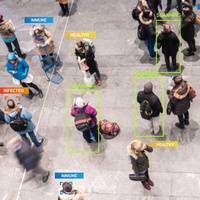Human robot interaction network
Robotics and AI are at the forefront of the current fourth industrial revolution. The acquisition and deployment of Pepper, a humanoid robot designed for human robot interaction, will allow academics across the University to collaborate in this area of growing research importance.
Pathways to sustainable and healthy diets: Young people’s views about climate change and eating less meat
Young people are often painted in the media as the generation who will adopt sustainable and healthy diets through concern about climate change and other related issues. But is this really the case? We try to find out.
How to involve the public and patients in data-intensive research?
Patient and public involvement (PPI) in studies can improve their relevance and impact. Our aim is to identify the best ways to involve PPI in data-intense health research.
Comparing rural attitudes to solar PV farms and windfarms in the UK
Photovoltaic solar energy has the potential to be rolled out on a larger scale than is currently the case in most of the UK, in the form of solar farms. However, little research has been carried out into the ways such farms might affect relationships with rural environments. We aim to conduct a scoping study to better understand this.
Autism, theology and church – identifying and establishing critical frameworks for interdisciplinary research
The Centre for Autism and Theology, launched in 2018, is playing a pioneering role in the emerging field of autism and theology. The Centre organised a conference in December 2021 to expand upon this expertise.
Individual facial biological age estimate for healthy ageing
Is it possible to track an individual’s biological age through changes in their facial features? We are developing an individual facial biological age estimate framework to try and find out.
Analysing stakeholder power dynamics in the policy-making process: an exploratory analysis of Scottish cities and towns
The distribution of power among stakeholders involved in the planning process differs under varying economic and political conditions. Our interdisciplinary investigation takes into account perspectives from real estate, policy making and negotiation, initially focusing on a relevant sample of Scottish cities and towns
Research Assistance for the Menstruation Research Network UK
Established in 2019, the Menstruation Research Network UK has partaken and documented a change in the discourse, policy, and media surrounding menstruation. Our aim is to grow the network and develop discourse on the various aspects surrounding menstruation.
Aberdeen Digital Humanities Workshops
Through a series of workshops, this project’s goal is to enhance and build on the opportunities presented by applying computer-based technology in the field of the humanities.
Understanding the rules of self-prioritisation effects in bolstering mood
Healthy people favour information associated with themselves and they prioritise stimuli that generate positive valence. Our aim is to create a model to aid our understanding of how changes in self-prioritisation may play a part in indicating neuropsychological disorders.










